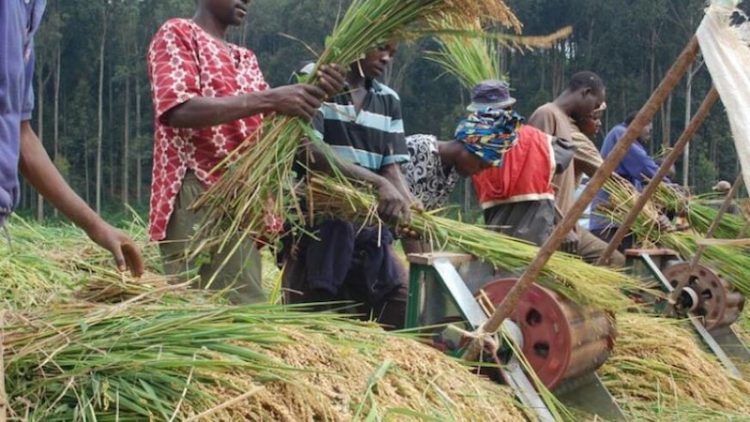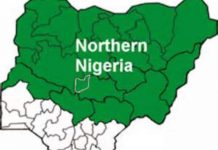One fascinating fact about Nigeria and the strength of its agriculture is that, as is the case with many other economic and social sectors, it is under reported, under-appreciated and its data is often unfairly distorted. That is partly why the awareness of our more than self-sufficiency in the key crops that constitute our staple foods and which give the nation a satisfactory level of food availability, security and stability, is patently latent.
For instance, many Nigerians may latently know that the country is the largest producer of sorghum in Africa and self-sufficient in that commodity. The country is also self-sufficient in millet production, being the second largest producer of the crop on earth. The Food and Agricultural Organisation (FAO) has all the data supporting that self-sufficiency reality. In the case of yam, cocoyam, cassava, sweet and Irish potatoes, there is no need to attribute our national self-sufficiency status to any local or foreign sources of data because the information is widespread, generally accepted as fact for which we all feel happy. God endowed us with the energy, the wisdom, the water and land to grow and be self-sufficient in these staples food crops.
The country is also self-sufficient in most fruits and vegetables that are consumed daily by millions of Nigerians: citrus, lemon, pawpaw, pineapples, mangoes, guava, tomatoes, varieties of pepper and many nuts and legumes. The one knotty and naughty food crop that posed a challengeto all administrations, is rice. The FAO reported that Nigeria’s rice self-sufficiency was 98.7in 1960-1964;98.8 per cent in the 1970-1974 period and 83.8 per cent as at 1989-1996. It was from that level of self-sufficiency that the country became the largest importer of rice in Africa. In February 2012, former Minister of Agriculture and Rural Development, Dr. Akinwunmi Adesina, said Nigeria was importing five million metric tons of rice per annum.

evil That imported rice, according to Alhaji Aliko Dangote,drainsUS$1.8 billion from the country’s foreign exchange yearly. He said the country imports 3.2 million metric tons of processed rice annually, which he frowned at. He disclosed this in 2016 while launching a 20, 000-strong rice out growers scheme for his paddy rice processing mill in Jigawa state. Dangoterightly felt that the money spent importing rice could be used better: “This huge foreign exchange would have been used on more impactful social development interventions if they were not needed for rice imports,” he said.
Then enters the Buhari-led administration, which is diversifying and growing the Nigerian economy by boosting the agricultural sector to deepen national food security and provide more agro raw-materials to processing industries. The Anchor Borrowers Programme (ABP), which he launched on November 17, 2015, in Kebbi state, is one of the strongest initiatives aimed at returning the country to self-sufficiency in rice production. It is driven by the Central Bank of Nigeria (CBN) in concert with the Federal Ministry of Agriculture and Rural Development, that of Water Resources and various state governments. The Central Bank of Nigeria (CBN) said “the broad objective of the ABP is to create economic linkage between smallholder farmers and reputable large-scale processors with a view to increasing agricultural output and significantly improving capacity utilization of processors.” This is happening. Dozens of new rice mills of various installed processing capacities have sprung up across the country, furiously processing paddy rice harvested in the country.
Consequently, the Governor of the CBN, Godwin Emefiele, reported a huge reduction in the importation of rice and a few other commodities between 2013 and 2017. Specifically, he said US$1.424 billion was spent in importing the commodities in 2013, while only US$628.6 million was spent for their importation in 2017, a saving of over US$800 million. An elated Minister of Agriculture, Chief Audu Ogbeh, added that Thailand and India, both dominant rice exporters to Nigeria, were able to export just 5, 161 and 426 metric tons of rice to Nigeria respectively in 2017. This was a paltry quantity compared with the 3.2 million metric tons imported annually as testified by Alhaji Aliko Dangote.
Other ABP objectives achieved include an increase in financing the agricultural sector by banks; raising a generation of farmers who see agriculture as a business and the deepening of the cashless policy and widening financial inclusion. The level of poverty among smallholder farmers has been reduced. More of them now live in improved dwellings, own agricultural machinery and send their children to school. The CBN Governor said that the programme has improved the economic and social standing of millions of Nigerians through the disbursement of N160 billion by the apex bank. The money empowered 850, 000 smallholder farmers across the country; they now have timely access to fertilisers, certified seeds and safe agro-chemicals.
Minister of Agriculture, Chief Audu Ogbeh, said the dominant rice exporters to Nigeria, Thailand and India, sold only 5, 161 and 426 metric tons of rice to Nigeria respectively by the close of 2017, against the 3.2 million metric tons imported annually as testified by Alhaji Aliko Dangote. Another initiativeof the Buhari-led administration which is empowering and moving Nigerians out of povertyis the TraderMoni scheme. It is a loan programme “created specifically for petty traders and artisans across Nigeria. It is a part of the Government Enterprise and Empowerment Programme (GEEP), being executed by the Bank of Industry.”
Under the scheme targeted at 20 million petty traders, Nigerians in the specified category“can receive interest-free loans starting from N10,000 and growing all the way to N100,000,” based on the beneficiary’s record of paying back. So far over N15 billion has been disbursed as loans to the beneficiaries. Although the notoriously,largely-partisan Transparency International of Olusegun Obasanjo has joined the opposition in describing the scheme as a vote-buying ploy, the truth is that it is genuinely aimed at reducing poverty among its clearly defined, targeted beneficiaries.The positive impact it is making on the wellbeing of its beneficiaries cannot be erased by mischievous allegations.







